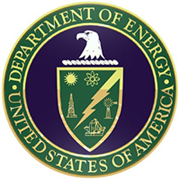|
About DOE Fellow: |
| DOE Related Projects: |
Currently Mr. Rivera is assisting Nuclear Engineer, Mr. Duriem Calderin, on a project evaluating the effectiveness of SIMWyPES wipes. The focus of the project is to evaluate the performance of the wipes in the decontamination of radioactive surfaces. The tests will be performed using beta emitter isotopes on different surfaces, such as linoleum, formica, ceramic tiles and others. The results of these tests will be compared with normal wipes used for decontamination of beta emitters in all DOE laboratories.
Mr. Rivera also provides assistance for the Rapid Deployment of Engineering Solutions to Environmental Problems project. Project support includes: Quantifying the dissolution kinetics of autunite mineral created as a result of uranium stabilization following the application of a polyphosphate remediation strategy in the presence of bicarbonate, and investigating factors such as temperature, pH and electrolyte concentration on dissolution kinetics.
| Internships |
Mr. Rivera interned at the Idaho National Lab in the summer of 2008. Under the supervision of Chemist, Rick Demmer, Mr. Rivera conducted research to determine criteria/requirements for tank farm pipeline unplugging.
US DOE Pipeline Unplugging Requirements Development -9361 Idaho National Lab (INL)
Transportation of radioactive or nuclear spent waste (NSW)
DOE sites around the country have an ongoing effort to transport and process several tons of radioactive waste in the form of slurries (liquids and solids) from storage tanks to processing facilities. A system of underground pipes is used for this purpose. Due to high levels of radiation, the pipes are difficult to access for maintenance or monitoring. Plugging of the pipes creates a difficult and hazardous problem to correct. The system of pipes used for the transportation of this waste needs technology for maintenance and for the prevention (and correction) of pipeline plugging. After reviewing the results of every test, including the benefits, advantages and disadvantages of each technology, requirements were developed for pressure, personnel training, environmental concerns, safety, and compatibility with current systems, operability, reliability, maintainability and cost.

Figure 2. Tank farm to process Spent Nuclear Waste at INL.
| Presentations: |
